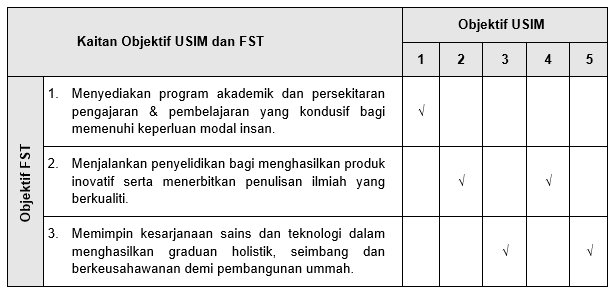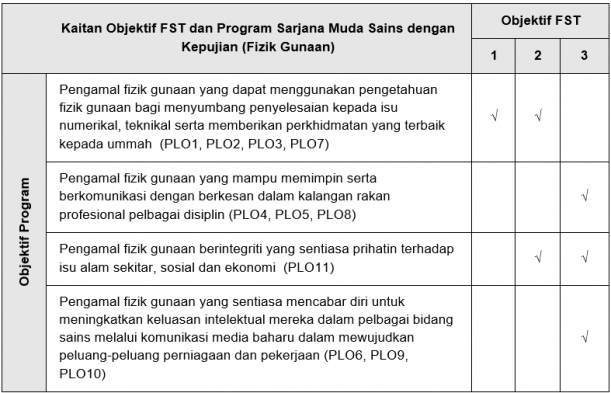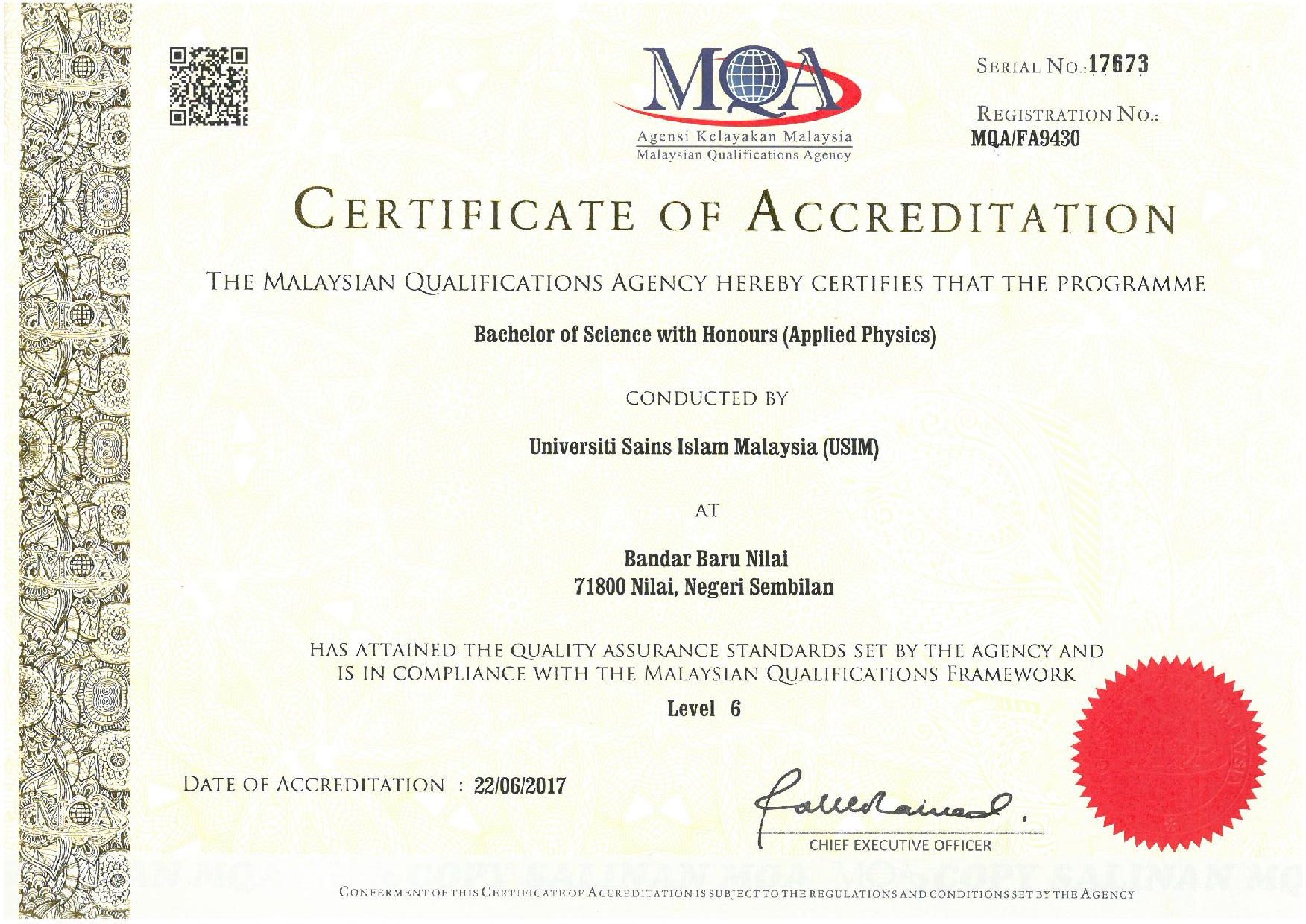Applied physics is a general term for physics used for specific technology or practice. This applied physics is different from engineering, where physicists usually do not design something specific, but use physics or use physics research to develop new technologies or solve engineering problems. This program is designed to train graduates who meet industry needs and be able to implement industry-oriented projects. We offer six areas of Materials Science, Photonics, Microelectronics, Computer Physics, Physics and Medical Physics.
The main objective of the Applied Physics Program is to produce graduates who are knowledgeable, skilled and able to integrate the Applied Physics knowledge associated with the ethical and social responsibility aspects.
- PEO1: Applied physics practitioners who can use Applied Physics knowledge to contribute solutions to technical issues and provide the best services to the ummah (LO1, LO2, LO6);
- PEO2: Applied physics practitioners who are able to lead and communicate effectively among multidisciplinary professional partners (LO3, LO5);
- PEO3: Applied physics practitioners with integrity that are always concerned about environmental, social and economic issues (LO4); dan
- PEO4: Applied physics practitioners who are constantly challenging themselves to increase their intellectual breadth in various fields of science through new media communications in creating business and employment opportunities (LO8, LO7).
Graduate BSc with Honors (Applied Physics) is able to:
- PO1: Demonstrate knowledge in understanding the concepts, theories and application of applied physics.
- PO2: Conducting experiments, using appropriate scientific laboratory techniques and equipment and analyzing and interpreting data for research use in Applied Physics.
- PO3: Have social accountability as a learned person.
- PO4: Able to demonstrate understanding and awareness of the basis of the norms of ethics, ethics and legislation as well as social issues related to the field of applied physics based on Naqli and Aqli knowledge.
- PO5: Be able to communicate well in the team and demonstrate leadership and professionalism skills.
- PO6: Able to solve problems analytically using scientific skills.
- PO7: Obtain and disseminate scientific information related to the Applied Physics field and demonstrate the desire for lifelong learning.
- PO8: Have entrepreneurial skills and be able to find opportunities and start innovative business plans.
Jadual Kaitan Objektif Universiti (USIM) dan Fakulti Sains Teknologi (FST)

Jadual Kaitan Objektif FST dan Program Sarjana Muda Sains dengan Kepujian (Fizik Gunaan)

Objektif USIM
- Memartabatkan pendidikan Islam serta membawanya ke dalam arus perdana pendidikan negara.
- Membina kesepaduan antara teori dan amali dalam diri setiap siswazah yang dikeluarkan.
- Melahirkan ilmuan Islam yang berpendidikan sepadu, mampu memimpin masyarakat majmuk serta mempunyai potensi yang tinggi menerajui pembangunan negara.
- Meneroka dan mengembalikan tradisi keilmuan Islam yang unggul bersesuaian dengan persekitaran dan teknologi terkini.
- Membekalkan modal insan yang kukuh dengan penghayatan nilai Islam yang mampu berinteraksi dan berkomunikasi dengan berkesan dalam masyarakat.
Objektif Fakulti (FST)
- Menyediakan program akademik dan persekitaran pengajaran & pembelajaran yang kondusif bagi memenuhi keperluan modal insan.
- Menjalankan penyelidikan bagi menghasilkan produk inovatif serta menerbitkan penulisan ilmiah yang berkualiti.
- Memimpin kesarjanaan sains dan teknologi dalam menghasilkan graduan holistik, seimbang dan berkeusahawanan demi pembangunan ummah.
Applied Physics graduates have a wide range of job opportunities in both the private and government sectors, where they can use their knowledge and use problem-solving skills. After graduation, some physicists work in the research and development, engineering and information technology sectors. While some will venture into disciplines such as solving industrial and engineering problems faced by the use of physics.
